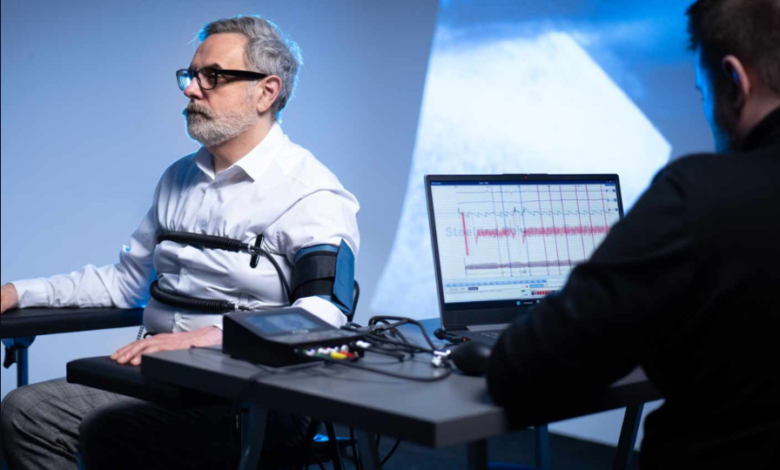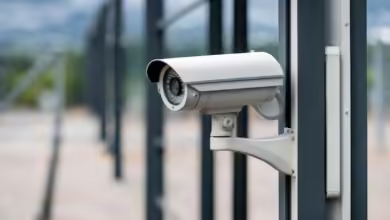Understanding Lie Detector Tests in Manchester: What Questions Are Asked and What to Expect

Lie detector tests, officially known as polygraph examinations, have gained widespread attention in the UK, particularly in cities like Manchester where their usage spans both personal and professional scenarios. Whether it’s a matter of workplace integrity, criminal investigations, or resolving trust issues in relationships, polygraph tests serve as a tool aimed at determining truthfulness. But one common question arises among those considering or facing such a test: What questions are actually asked in a lie detector test in Manchester?
This article explores the intricacies of polygraph examinations in Manchester, shedding light on the types of questions asked, the structure of these tests, their legal standing, and what test-takers can expect. By understanding the nature of the questions posed during a polygraph, individuals can approach the process with greater clarity and preparedness.
What Is a Lie Detector Test and How Does It Work?
Before diving into the specific questions asked during a lie detector test in Manchester, it’s important to understand the fundamentals of how the test operates. A lie detector test measures physiological responses—such as heart rate, blood pressure, respiration, and skin conductivity—while a person answers a series of questions. The assumption is that deceptive answers will trigger involuntary physical responses due to stress or anxiety.
These physiological changes are recorded via sensors attached to the body, and the polygraph examiner interprets the data to determine whether the subject is being truthful. While polygraph results are not always admissible in UK courts, they are commonly used in private investigations, employment screenings, and certain criminal proceedings as supportive evidence.
See also: Benefits of AI Face Swap Technology in Content Creation
Common Scenarios for Lie Detector Tests in Manchester
The context of the polygraph examination greatly influences the nature of the questions asked. In Manchester, lie detector tests are frequently used for the following purposes:
- Infidelity and Relationship Issues
Many couples turn to lie detector tests when trust has eroded. Whether it’s accusations of cheating or lying about financial matters, polygraphs are often seen as a last resort to clarify suspicions. - Theft and Workplace Investigations
Employers may use polygraph services when internal investigations point to employee misconduct, especially in cases of theft or fraud. - Criminal Cases
Though less common, lie detector tests may be requested by legal teams or police forces in Manchester to assess the credibility of suspects or witnesses. However, participation is voluntary, and results are used as supplementary data. - Pre-Employment or Security Clearance
For positions involving national security or sensitive information, a polygraph test might be part of the vetting process. - Family Disputes and Custody Battles
In emotionally charged situations, such as custody cases, family members may undergo polygraph tests to defend their character or refute allegations.
The Structure of a Lie Detector Test
Lie detector tests are not simply about strapping someone to a machine and firing off questions. There is a structured process that includes:
- Pre-Test Interview: This stage allows the examiner to gather background information and clarify the purpose of the test. It helps build a rapport with the subject and explains how the polygraph works.
- Question Formulation: The examiner, often with input from the client, carefully crafts the questions. This step ensures that each question is specific, clear, and relevant to the issue at hand.
- Actual Testing Phase: The subject is asked a mix of different types of questions while connected to the polygraph machine. This is where physiological responses are recorded.
- Post-Test Analysis and Report: After the test, the examiner analyzes the data and provides a report indicating whether the person was truthful or deceptive in their responses.
Types of Questions Asked in a Lie Detector Test
Polygraph questions fall into three main categories, each serving a different purpose in the test:
1. Irrelevant Questions
These are general questions that are not related to the subject matter but are used to establish a baseline physiological response. Examples include:
- “Is your name [Full Name]?”
- “Are you sitting down?”
- “Do you live in Manchester?”
These questions are easy to answer truthfully and help the examiner calibrate the subject’s normal physiological state.
2. Control Questions
Control questions are designed to provoke a slight stress response and are often broad or related to past behavior. They help the examiner compare responses between truth-related and issue-related questions. For example:
- “Have you ever lied to get out of trouble?”
- “Have you ever taken something that didn’t belong to you?”
- “Have you ever betrayed someone’s trust?”
These questions may feel intrusive or uncomfortable, even if they aren’t directly related to the reason for the test.
3. Relevant Questions
These are the core questions directly tied to the matter being investigated. In Manchester, the specific questions asked during a lie detector test depend heavily on the context. Below are examples based on common scenarios:
Infidelity and Relationship Tests:
- “Since you’ve been in a relationship with [Partner’s Name], have you had sexual contact with anyone else?”
- “Have you lied to your partner about your whereabouts on [specific date]?”
- “Have you exchanged intimate messages with someone other than your partner?”
Theft or Workplace Investigations:
- “Did you take the missing £500 from the company safe on [specific date]?”
- “Have you ever used company property for personal gain without permission?”
- “Do you know who is responsible for the missing inventory?”
Can You Refuse to Answer Certain Questions?
Yes, during the pre-test interview, you will have the opportunity to review and discuss all questions that will be asked. If you’re uncomfortable with any question or believe it is misleading or unfair, you can request its removal or revision. No question will be asked without your prior consent, making the process more transparent and less intimidating.
Accuracy and Limitations of Lie Detector Tests
It’s important to note that while polygraphs can be a useful investigative tool, they are not foolproof. Most experts agree that the accuracy of a polygraph test hovers between 80% and 90%, depending on the examiner’s skill, the test conditions, and the subject’s psychological state.
False positives and false negatives can occur. For example, a naturally anxious person might appear deceptive even when telling the truth, while a seasoned liar with strong emotional control might “pass” the test despite being dishonest.
Because of these limitations, UK courts generally do not accept polygraph results as standalone evidence, although they may consider them alongside other forms of proof.
Who Administers Polygraph Tests in Manchester?
In Manchester, lie detector tests are usually conducted by private examiners or specialized agencies. When choosing a provider, it’s critical to check for:
- Accreditation with a recognized body like the American Polygraph Association (APA) or the British Polygraph Association (BPA).
- Experience and Background in the relevant area (e.g., law enforcement, psychology, forensics).
- Transparent Pricing and Ethical Standards, ensuring no coercion or manipulation occurs during testing.
Professional examiners follow a strict code of conduct and maintain confidentiality throughout the process.
Preparing for a Lie Detector Test in Manchester
If you’re scheduled to take a polygraph test in Manchester, here are some steps you can take to prepare:
- Be Honest in the Pre-Test Interview
Lying during the preliminary stage can raise suspicion and distort the results. - Get a Good Night’s Sleep
Fatigue can affect your physiological responses and concentration levels. - Avoid Alcohol or Drugs
Substances can alter your body’s natural reactions and may disqualify you from taking the test. - Location
St James Tower, 7 Charlotte St, Manchester M1 4DZ, United Kingdom
Final Thoughts
Lie detector tests in Manchester are tailored to the specific issues at hand, and the questions asked will reflect the nature of the investigation or dispute. Whether it’s a personal relationship issue, a professional accusation, or a legal conflict, the test aims to uncover the truth through a carefully structured questioning process supported by physiological monitoring.
While not legally binding in many cases, the results of a polygraph can offer clarity, vindication, or direction for further investigation. By understanding what to expect and how the questions are structured, individuals can approach the process with confidence and transparency.
So if you’re asking, “What questions are asked in a lie detector test in Manchester?”—know that the answer lies not just in the words themselves, but in the emotional, psychological, and situational context surrounding them.





